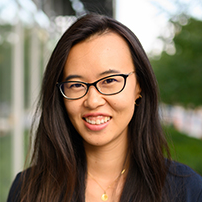Objective as researchers:
to learn how secondary students view social computing and how their understanding of it can be enhanced
Objective for educators:
to provide best practices and effective resources for teaching social computing education
Objective for students:
to prompt better understanding, interest, and critical thinking of various social computing topics
- Our Method -
This study is approved under IRB exemption.
Learn More About Exempt ResearchPreparation:
- Design surveys that will collect demographics & experiences and measure interest & understanding
- Create modules that include a short lecture and activity
Execution:
- Test module effectiveness by teaching the lessons
- Collect survey data and feedback from teachers and students
Result:
- Launch finalized teaching resources through a website
Social Futures Lab: Social Computing Curriculum Team
If you have any questions about our study, please contact us below.



